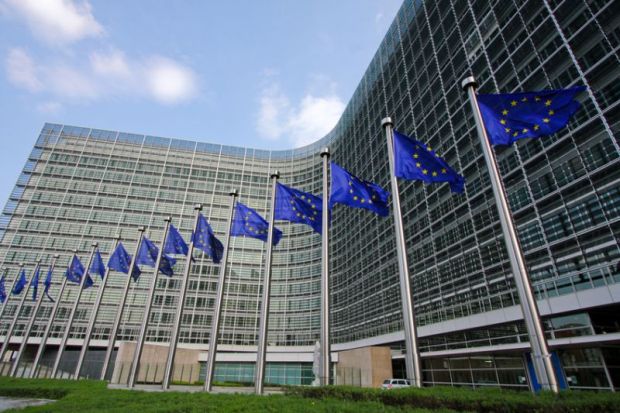Universities and research bodies have reacted with dismay after a marathon European Union summit to agree an unprecedented stimulus package ended with further cuts to the bloc’s research spending.
Horizon Europe, the EU’s flagship research and innovation programme, set to start next year, was cut to a budget of €80.9 billion (£72.9 billion) in order to get the deal over the line last night, €13.5 billion less than was hoped for as recently as May.
Observers see the outcome as little better than its predecessor, Horizon 2020, which has been running since 2014.
“It’s very disappointing,” said Lidia Borrell-Damián, secretary general of Science Europe, an umbrella body for research funders. “Now we have virtually the same budget.”
According to Science Europe, Horizon 2020 had a budget of €73.5 billion using comparable figures, although this was spread among UK universities, too. It is unclear if the UK will associate with the upcoming Horizon Europe programme, though the budget will rise if it does.
Adding to researchers’ disappointment is the fact that Horizon Europe will get just €5 billion of the EU’s unprecedented €750 billion recovery package, which has been tacked on top of the bloc’s normal budget in the wake of the pandemic.
As national leaders in Brussels struggled for four days to come to an agreement, the research share of this recovery pot was steadily whittled away, partly to appease the so-called “frugal” countries of the Netherlands, Austria, Denmark and Sweden, who wanted to limit the size and scope of the package.
The end result of the haggling is that the EU will spend just 4.5 per cent of its budget over the next seven years on research and innovation, compared with 7.1 per cent when it struck a similar deal back in 2013, according to calculations from Joep Roet, an EU policy adviser for the Netherlands House for Education and Research, a lobbying organisation in Brussels.
“It shows that seven years ago we were more worried about research and innovation than we are now” despite “being in the middle of a pandemic”, said Maria da Graça Carvalho, an MEP and former Portuguese minister of science, innovation and higher education.
The cuts came not because national leaders have any particular animus against research itself, she explained. Instead, Horizon Europe was “sacrificed” because it is a programme controlled by the EU itself, rather than going via national governments, she said.
Other EU initiatives – including climate change transition subsidies and a pan-EU health initiative designed to improve pandemic resilience – were also heavily pared back when negotiations went to the wire.
The bloc’s centralised programmes, such as Horizon Europe, are “particular vulnerable” to cuts because their funding “doesn’t go directly to member states”, said Jan Palmowski, secretary general of the Guild of European Research-intensive Universities.
There has been “daily political lip service” paid in Brussels to the idea of research and innovation being as a key EU priority, said Kurt Deketelaere, secretary general of the League of European Research Universities – but this latest deal showed it was not a reality, he argued. It should be “considered as a breach of trust between the academic and political worlds,” he said.
Last night’s deal is still not quite the end of negotiations. The European Parliament has to sign off the budget, and could press for more research spending.
But MEPs will be under “enormous pressure” to approve the deal, said Thomas Estermann, director for governance, funding and public policy development at the European University Association, because of how hard it has been to stitch together an agreement from national governments.
“I’m not too hopeful that this [budget settlement] will fundamentally change,” he said.
Register to continue
Why register?
- Registration is free and only takes a moment
- Once registered, you can read 3 articles a month
- Sign up for our newsletter
Subscribe
Or subscribe for unlimited access to:
- Unlimited access to news, views, insights & reviews
- Digital editions
- Digital access to THE’s university and college rankings analysis
Already registered or a current subscriber? Login







